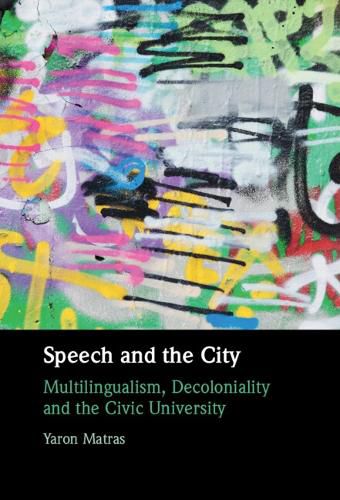Readings Newsletter
Become a Readings Member to make your shopping experience even easier.
Sign in or sign up for free!
You’re not far away from qualifying for FREE standard shipping within Australia
You’ve qualified for FREE standard shipping within Australia
The cart is loading…






The Brexit debate has been accompanied by a rise in hostile attitudes to multilingualism. However, cities can provide an important counter-weight to political polarisation by forging civic identities that embrace diversity. In this timely book, Yaron Matras describes the emergence of a city language narrative that embraces and celebrates multilingualism and helps forge a civic identity. He critiques linguaphobic discourses at a national level that regard multilingualism as deficient citizenship. Drawing on his research in Manchester, he examines the 'multilingual utopia', looking at multilingual spaces across sectors in the city that support access, heritage, skills and celebration. The book explores the tensions between decolonial approaches that inspire activism for social justice and equality, and the neoliberal enterprise that appropriates diversity for reputational and profitability purposes, prompting critical reflection on calls for civic university engagement. It is essential reading for anyone concerned about ways to protect cultural pluralism in our society.
$9.00 standard shipping within Australia
FREE standard shipping within Australia for orders over $100.00
Express & International shipping calculated at checkout
The Brexit debate has been accompanied by a rise in hostile attitudes to multilingualism. However, cities can provide an important counter-weight to political polarisation by forging civic identities that embrace diversity. In this timely book, Yaron Matras describes the emergence of a city language narrative that embraces and celebrates multilingualism and helps forge a civic identity. He critiques linguaphobic discourses at a national level that regard multilingualism as deficient citizenship. Drawing on his research in Manchester, he examines the 'multilingual utopia', looking at multilingual spaces across sectors in the city that support access, heritage, skills and celebration. The book explores the tensions between decolonial approaches that inspire activism for social justice and equality, and the neoliberal enterprise that appropriates diversity for reputational and profitability purposes, prompting critical reflection on calls for civic university engagement. It is essential reading for anyone concerned about ways to protect cultural pluralism in our society.